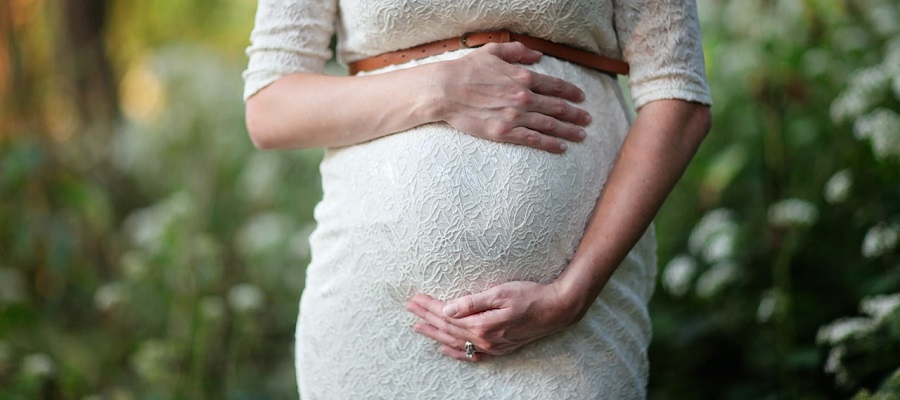There are certain foods that pregnant women should avoid or limit during pregnancy due to the risk of foodborne illness or other potential health risks. Here are a few examples of foods that pregnant women should avoid or limit:
-
Raw or undercooked meats, poultry, and seafood: Pregnant women should avoid raw or undercooked meats, poultry, and seafood to reduce the risk of foodborne illness. It's important to cook these foods to a safe internal temperature to kill any harmful bacteria.
-
Raw or undercooked eggs: Pregnant women should avoid raw or undercooked eggs to reduce the risk of salmonella infection. It's important to cook eggs until the yolk and white are firm.
-
Unpasteurized milk and dairy products: Pregnant women should avoid unpasteurized milk and dairy products, as they may contain harmful bacteria. It's important to choose pasteurized products to reduce the risk of foodborne illness.
-
Unwashed fruits and vegetables: Pregnant women should wash all fruits and vegetables thoroughly to reduce the risk of infection from harmful bacteria or parasites.
-
Caffeine: Pregnant women should limit caffeine intake to 200 mg or less per day. Caffeine is found in coffee, tea, soda, chocolate, and some medications.
-
Alcohol: Pregnant women should avoid alcohol completely during pregnancy, as alcohol can harm fetal development.
It's important for pregnant women to pay attention to their diet and to avoid or limit these types of foods to reduce the risk of foodborne illness and other potential health risks. It may be helpful to consult with a healthcare professional or a registered dietitian for specific guidance on what to eat during pregnancy.
What are the alternatives to these foods?
Here are some alternatives to the foods that pregnant women should avoid or limit during pregnancy:
-
Raw or undercooked meats, poultry, and seafood: Instead of raw or undercooked meats, poultry, and seafood, pregnant women can choose cooked versions of these foods. It's important to cook these foods to a safe internal temperature to kill any harmful bacteria.
-
Raw or undercooked eggs: Instead of raw or undercooked eggs, pregnant women can choose cooked eggs that are prepared with the yolk and white fully cooked.
-
Unpasteurized milk and dairy products: Instead of unpasteurized milk and dairy products, pregnant women can choose pasteurized versions of these products to reduce the risk of foodborne illness.
-
Unwashed fruits and vegetables: Pregnant women can wash all fruits and vegetables thoroughly before eating them to reduce the risk of infection from harmful bacteria or parasites.
-
Caffeine: Instead of caffeine-containing drinks, pregnant women can choose water, decaffeinated coffee or tea, or caffeine-free soda.
-
Alcohol: Instead of alcohol, pregnant women can choose non-alcoholic beverages, such as water, juice, or milk.
By choosing these alternatives, pregnant women can still enjoy a varied and nutritious diet while minimizing the risk of foodborne illness and other potential health risks. It may be helpful to consult with a healthcare professional or a registered dietitian for specific guidance on what to eat during pregnancy.
How do these foods affect the health of the fetus?
There are certain foods that pregnant women should avoid or limit during pregnancy due to the risk of foodborne illness or other potential health risks to the fetus. Here are a few examples of how these foods can affect the health of the fetus:
-
Raw or undercooked meats, poultry, and seafood: Consuming raw or undercooked meats, poultry, and seafood during pregnancy can increase the risk of foodborne illness, such as salmonella or listeria, which can harm fetal development.
-
Raw or undercooked eggs: Consuming raw or undercooked eggs during pregnancy can increase the risk of salmonella infection, which can harm fetal development.
-
Unpasteurized milk and dairy products: Consuming unpasteurized milk and dairy products during pregnancy can increase the risk of foodborne illness, such as listeria, which can harm fetal development.
-
Unwashed fruits and vegetables: Consuming unwashed fruits and vegetables during pregnancy can increase the risk of infection from harmful bacteria or parasites, which can harm fetal development.
-
Caffeine: Consuming large amounts of caffeine during pregnancy has been linked to an increased risk of miscarriage and low birth weight. It's important for pregnant women to limit caffeine intake to 200 mg or less per day.
-
Alcohol: Consuming alcohol during pregnancy can harm fetal development and increase the risk of fetal alcohol syndrome, a condition that can cause physical and developmental problems in the child. Pregnant women should avoid alcohol completely during pregnancy.
By avoiding or limiting these types of foods during pregnancy, pregnant women can reduce the risk of foodborne illness and other potential health risks to the fetus. It's important for pregnant women to pay attention to their diet and to consult with a healthcare professional or a registered dietitian for specific guidance on what to eat during pregnancy.


